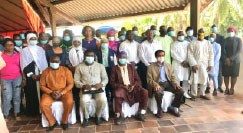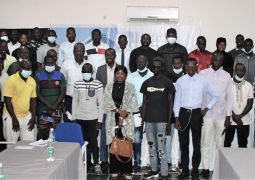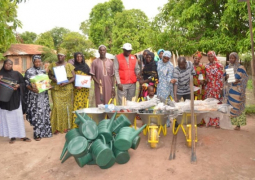
Antimicrobial is an agent that kills or stops the growth of micro-organisms such as bacteria, fungi and algae. Annually, World Antimicrobial Awareness Week (WAAW) is celebrated from 18-24 November. Consequently, the theme for this year’s commemoration is, “spread awareness, stop resistance”.
Addressing the gathering, Karamba Keita, deputy Permanent Secretary, Technical at the Ministry of Health, said the aim of the celebration is to increase awareness of global antimicrobial resistance (AMR) and to encourage best practices among health workers, policy makers and the public to prevent further emergence and spread of drug resistant infections.
DPS Keita noted that antimicrobial resistance occurs when micro-organisms like bacteria, viruses, fungi and parasites resist the action of medication which makes common infection harder to treat.
He described antimicrobial as an emerging global threat, nothing that presently, antimicrobial resistance infection causes 700,000 deaths every year globally and is estimated to account for 10 million by 2050 if no action is taken”.
Dr. Desta A. Tiruneh representative of the World Health Organization in The Gambia described AMR as a global health and development threat, saying WHO has declared that it as one of the top 10 global public health threats facing humanity.
“Government, partners and the private sector can work together by investing in water, sanitation and hygiene infrastructure and limiting the use of antibiotics in livestock and aqua farming. Health workers should prescribe and dispense antibiotics only when they are truly needed,” he advised.
WHO country rep observed that the main drivers in the development of drug resistance pathogens, are the misuse and overuse of antimicrobials.
“Also, lack of access to clean water and sanitation in health care facilities, farms and community settings and inadequate infection prevention and control promotes the emergence and spread of drug infections. Without effective antimicrobials, the success of modern medicine in treating infections, including during major surgery and cancer chemotherapy would be at increased risk,” he pointed out.
Dr. Mustapha Bittaye, director of health services at the Ministry of Health, acknowledged that antimicrobial resistance is a problem, particularly regarding the cost and hospital stay, thus AMC leads to higher medical costs, longer hospital stays, others.
Therefore, he said it is important for they in the health services to reduce the time people stay in the hospital and the amount of resources they spend on antibiotics.





